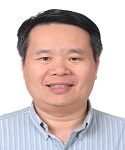| Biography | |
|---|---|
 Prof. Ling Hong Huazhong University of Science and Technology, China |
|
| Title: Vitamin K2 Promotes Glycolysis in Bladder Carcinoma Cells that Leads to AMPK-dependent Autophagic Cell Death | |
| Abstract:
Cancer cells exhibit a high rate of glycolysis, compared to normal cells, to meet their fast growth and requirement for metastasis. Targeting glycolysis against cancer cells appears to intelligent strategies. Here, we show that Vitamin K2, an anticancer agent, promotes the glycolysis in bladder cancer cells, while inhibiting the tricarboxylic acid (TCA) cycle. Activation of PI3K/AKT and HIF-1α is crucial for Vitamin K2-induced glycolysis upregulation that results in metabolic stress and subsequent AMPK-dependent autophagy and apoptosis. Intriguingly, glucose supplementation abrogates AMPK activation and attenuates autophagic cell death in Vitamin K2-treated cells. Both PI3K/AKT inactivation and HIF-1α blockade counteract Vitamin K2-induced AMPK-dependent autophagic cell death. Besides, 2-DG, DCA and 3-BP (three typical glycolytic inhibitors) respectively abolish AMPK-dependent autophagic cell death triggered by Vitamin K2 through glycolysis inhibition. Collectively, these findings reveal that Vitamin K2 could trigger AMPK-dependent autophagic cell death in bladder cancer cells by elevating the glycolytic process..
| |
| Biography:
Dr. Ling Hong is a professor in Life Science College at Huazhong University of Science and Technology. He got his Ph.D. in Bicochemistry from University of Arizona, USA. During his postdoctoral research period in Dr. Gerry Rubin’s lab in UC Berkeley, Dr. Ling Hong constructed various cDNA libraries to decipher the Drosophila and human transcriptome. He cloned (and named) a very interesting Drosophila gene, heixuedian (heix), which, when mutated, causes melanotic tumor with a phenotype similar to human leukemia. Later on, it was found that, in human, loss of function of UBIAD1 (the human ortholog of Heix) tends to cause the progression of certain types of cancers such as bladder carcinoma and prostate carcinoma. Mutation of UBIAD1 gene also causes high cholesterol level in SCCD (Schnyder crystalline corneal dystrophy) patients. Besides these, UBIAD1/Heix was identified as a vitamin K2 biosynthesis enzyme. As a mitochondrial electron carrier, vitamin K2 could be related to blood coagulation and Parkinson's disease. UBIAD1 has also been reported as a non- mitochondrial CoQ10-forming enzyme with a specific function of antioxidant in cardiovascular system. Right now, the research interest of Dr. Ling Hong’s lab is on the molecular mechanism of human disease, especially on the field of “Metabolism and Cancer”.
| |
